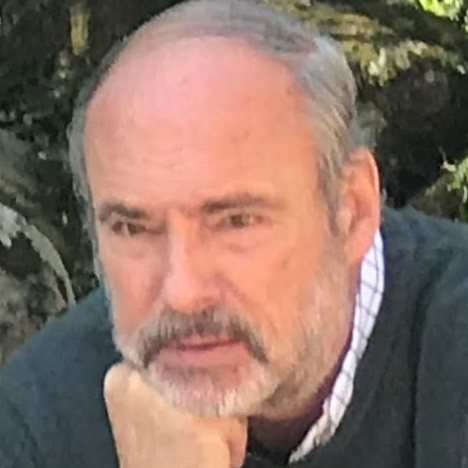Tornou-se costume, sempre que morre uma celebridade, recorrermos às redes sociais para exprimirmos tristeza, amor e gratidão por essa pessoa, sobretudo nós os que já estamos na zona da meia-idade e que crescemos antes da internet e dos 17,500 canais de televisão.
Os personagens mediáticos dessa época pré-internet deixaram uma impressão profunda nas nossas mentes, porque não havia tantos como hoje. Cresci viciada na televisão quando, no Reino Unido, ainda só existiam três canais. Vi inumeráveis filmes dos anos 30, 40, 50 e 60 na BBC2 (os filmes mais recentes só passavam em dias feriados). Havia apenas uma telenovela, desenhos animados, e Star Trek, o original, repetido continuamente durante 20 anos depois do último episódio ser filmado.
Por isso, sexta-feira passada, a internet e a imprensa online pararam durante uns momentos para dizer “Ah, o Leonard Nimoy morreu.” E durante esses momentos, lembrámo-nos dele e esquecemo-nos do resto, dos jihadistas, do Syriza, das eleições iminentes (em Portugal e no Reino Unido), da cambalhota da Madonna e daquele vestido piroso preto-azul-branco-dourado que nos fez a todos passar por idiotas nessa mesma tarde. Porque alguém que sempre tinha existido nas nossas vidas já não existe.
Antigamente, quando ainda não havia internet e não passávamos os dias a falar uns com os outros através das redes sociais, a morte de uma celebridade era noticiada no telejornal da noite, e a avó dizia “ah, eu até gostava dele”, a mãe comentava “que pena, mas já era bastante velho” e nós, as crianças, tentávamos lembrar-nos dos filmes ou séries que esse recém-morto protagonizara, porque não havia bases de dados para consultarmos. No dia seguinte, haveria uma notícia no jornal e talvez algum comentário na mercearia: “viste que aquele actor simpático morreu?”, e era tudo. Na Grã-Bretanha, não eram frequentes as exibições públicas de emoção. Antes da morte de Diana em 1997, e com excepção do funeral de Churchill em 1965, os britânicos comoviam-se pouco em público.
Hoje, nos minutos seguintes à notícia da morte de qualquer celebridade, todos tentamos escrever alguma coisa. Queremos anunciar que essa pessoa morreu, que gostávamos muito dela, e a ocasião faz-nos regressar à juventude, enquanto, por uns momentos, trocamos memórias, anedotas e links sobre o desaparecido.
Nestas alturas, a internet irradia amor. Irradia amor e incredulidade quando morre alguém como o Robin Williams. Irradia amor e ódio quando o morto é uma pessoa, digamos, estranha, como o Michael Jackson. E irradia ainda mais amor quando o falecido era daqueles que tinha sido sempre considerado “cool”, como o Nimoy ou o Lou Reed, e devido a essa “cooleza”, ainda mais gente se junta à comemoração.
Esta irradiação momentânea revela muita coisa. Revela que ainda somos crianças, e que, de certa maneira, continuamos a venerar as pessoas e/ou as personagens que protagonizaram as histórias da nossa infância (tenho certeza de que há muita gente de luto por causa de Mr Spock em vez de Leonard Nimoy, embora Nimoy fosse uma pessoa extremamente “cool” na vida real). Revela que ainda somos como éramos na Idade do Ferro: quando morreu o Ug, o contador de histórias da aldeia, fomos certamente todos à cabana central para dizermos uns aos outros: “o Ug era um homem bom, até um dia me deu uma vara”. O Facebook é agora a nossa cabana central, só que com menos fumo. Claro, como acontece num funeral, a nossa ida à internet só tem benefícios para nós. O convidado de honra não está lá e não faz ideia do que se está a passar. É a maneira de ultrapassarmos a tristeza da morte e da perda e ajuda-nos a estar uns com os outros, seja na cabana cheia de fumo, num funeral ou numa página de Facebook.
O facto de o convidado de honra não lá estar para sentir a sua consagração, porém, deixa-me triste. Aqui estamos todos, a escrever obituários e declarações de amor para uma pessoa que nunca vai ver o tsunami de amor, tristeza e gratidão que a sua morte provocou. E nada mudaria se pudesse ver, o que ainda me deixa mais triste. Não a salvaria da idade avançada, nem da doença fatal, nem teria salvo o Robin Williams, mas perante centenas de milhares de pessoas a proclamar que essa pessoa fazia parte das suas vidas, pergunto-me se o recém-falecido sabia mesmo que era tão precioso para todos nós. Espero que sim. Embora pense que a obsessão com celebridades é estranha e bastante estúpida, gosto da ideia de termos ícones culturais que são amados.
Dropping like beloved flies.
It’s only natural when someone very famous dies that we, who are a bit middle-aged who grew up and had lives before the internet and before there were 17,500 TV channels, take to social media and express our sadness, love and gratitude for that person.
Our icons and beloved characters were etched deeply into our minds, because there weren’t very many of them. I grew up as a TV addict when there were only three channels. I saw countless films from the 30s, 40s, 50s and 60s on BBC2 (recent films were shown only on bank holidays), there was one soap opera which, in those days, was funny and dark and in the kitchen sink, and stop-frame animated kids’ shows and Star Trek, the original series, which were shown on a loop for about twenty years after they were last recorded.
So, when one of our icons from those days died on Friday, and as is now customary, the internet and press stopped for a while and said “hey… oh no Leonard Nimoy died”. For a few moments we remembered him, and were distracted from the rest… from the bloody jihadis and bloody Syriza and bloody impending elections and bloody Madonna falling down the stairs, even from that bloody dress that turned us all into idiots for an afternoon, because someone who had been around forever in our lives had disappeared from the world.
Before we all talked to each other across the world, day and night on this internet, when the death of someone famous was announced on the evening news, your granny would say “oh, i used to like him” and your mother would say “what a shame, but he was quite old” and you would try to remember what they had starred in, because there wasn’t an database to consult. There might be a piece in the newspaper the next day, maybe a mention in the village shop, “oh, did you see that that nice actor died?”, “oh, yes, what a shame, I liked him”, and that was it. In Britain, there were no public outpourings of grief. Apart from the death of Churchill in 1965 and then not until the death of Princess Diana in 1997, the British didn’t do emoting in public.
Now, within minutes of a death being announced, all of us, all over the world, are all pushing at the gates to write something to let the world know that we know that they are dead, that we liked them very much, that they reminded us of being young again, and for a while, there are memories and jokes and links shared with each other, to remember that person by.
The internet glows with love on the death of someone famous and beloved. It glows hot with love and disbelief when someone like Robin Williams goes, it glows with equal measures of love and hate when it’s someone, let’s just say weird, like Michael Jackson. It glows significantly brighter if the person who died was ridiculously cool, like Nimoy or Lou Reed, and where there’s that coolness, there’s usually a large amount of bandwagon jumping involved, but hey, it’s ok.
That momentary glow is revelatory. It shows that we are still children, and, to one degree or another, still idolise people and/or the characters they played (I am sure that most people are mourning Mr. Spock this weekend, not Leonard Nimoy, although he was a pretty cool person in real life). It shows that we are still an iron age people. When Ug, the beloved village storyteller died, we came together in the communal hut and said to each other “Ug, he good man, he give me stick once”. Facebook is our communal village hut, it’s just less smokey. Of course, like a funeral, our taking to the net is just for our benefit. The guest of honour is not there, has no idea what is happening, it is just the human’s coping mechanism, the way to deal with death and loss and to help us belong to each other, whether it is in a smokey hut, a funeral or a facebook timeline.
The fact that the guest of honour isn’t there to bask in that glow, though, makes me sadder. Here we all are, writing obituaries and declaring our love for a person and it’s too late. They will never see the tsunami of love and sadness and gratitude. It wouldn’t change a thing if they did, but it still makes me sad. It wouldn’t save them from old age or the ravage of illness, and it wouldn’t have saved Robin Williams, but when I see hundreds and hundreds of thousands of people saying out loud that someone who died had a part in their lives, I cringe a little, and wonder if the deceased did have an inkling of how precious they were. I hope so. Although I think our obsession with celebrity is weird and pretty stupid, I like that we have cultural icons that are markers for our age, and they, whoever they are, well, they’re loved.














